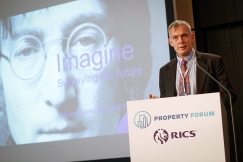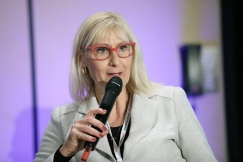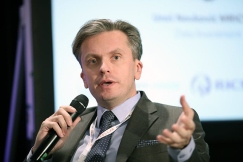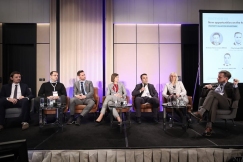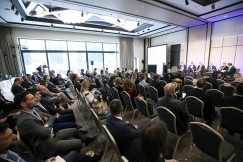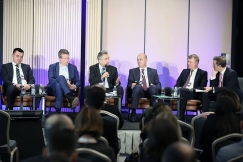In the next few years, we can expect serious investments by foreign investors in the real estate market of Southeast Europe, especially in Serbia. This was concluded at the international real estate conference “Balkans Property Forum 2018”, co-organized by Property Forum and RICS in Belgrade.
The Forum brought together more than 150 experts in real estate, and the main themes were trends and innovations that affect the future of real estate with a focus on the Balkans countries.
Nebojša Nešovanović, Head of Valuation SEE, CBRE, said on this occasion that the Balkan region has become very interesting to investors at a time when all other regions have become too expensive.
-When prices in Central and Eastern European countries came almost to the level of Western Europe, a space for Southeast Europe, especially Slovenia Croatia, Bulgaria and Serbia, opened. According to him, although not a member of the EU, Serbia is very interesting for foreign investors because it is large enough and because it has an insufficiently developed real estate market.
– We lack various facilities such as shopping centres, offices, as well as residential buildings. We are the last to develop shopping centres since all other cities completed their development seven or eight years ago. Three shopping centres are currently being built in Belgrade. Having in mind the purchasing potential of citizens on an annual basis for the goods offered in shopping malls, there is probably room for one more, said Nesovanovic, adding that although investors are slowly entering the residential market, construction activity it’s still not strong enough.
-The construction of apartments is not enough. The demand is much higher than the offer, and this increases prices per square metre. In the last three years, prices have risen by 30% to 40%. Prices are still traditionally the highest in Dedinje, Vračar and in the centre, but the price per square metres in New Belgrade is also increasing and it currently reaches 2500 euros. Apartments in new buildings are reserved at the pre-sales stage and customers are cash buyers, people from the diaspora, people who have successful businesses and want to invest in real estate, explained Nešovanovic and emphasized that credit buyers almost do not have a chance to buy a flat in a new building in Belgrade.
However, the desire and decision for investment, the funds provided and the selected location is not enough for investors to be successful. They continue to encounter unaccepted laws in this part of Europe, slow legal and bureaucratic procedures, legal insecurity, and often political tensions, according to the panel of international investors that gathered at the Forum
How much has Serbia worked to improve the investment climate in the last 4 years and what needs to be done is explained by Danijela Ilić, President of the National Association of Valuers of Serbia.
